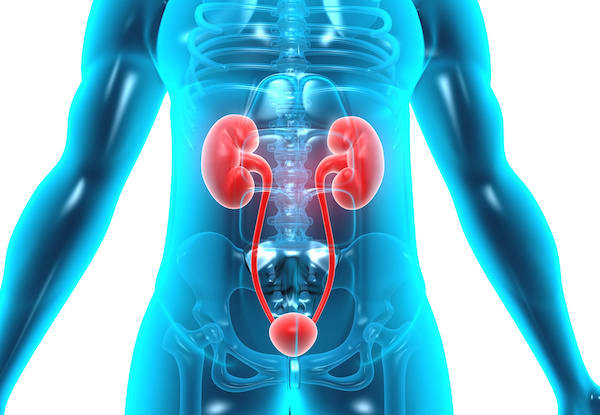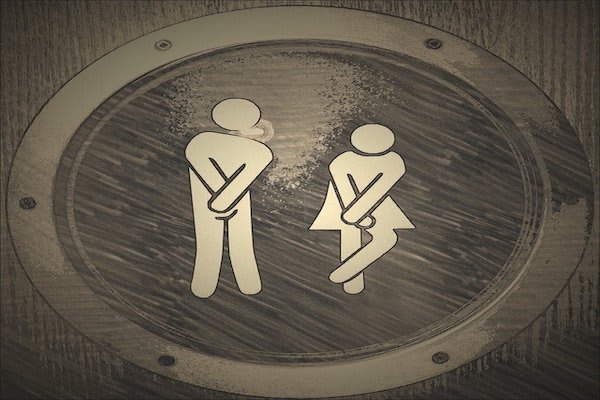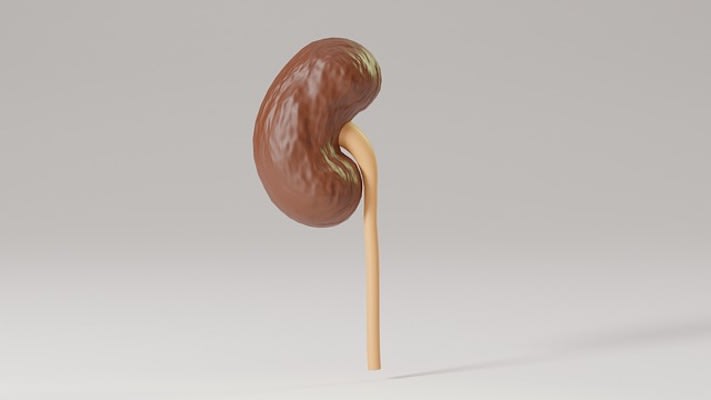Table of Contents
I. The Function of the Urinary Tract
a. Symptoms of Interstitial Cystitis
V. Diagnosing Urinary Problems
The Function of the Urinary Tract
The proper functioning of the urinary system is essential to the health of the body. The organs of the urinary system include the kidneys, ureters, bladder, and urethra. The kidneys filter the blood and create urine. Urine travels down through the ureters (ducts) into the bladder, where the urine is stored. When a person uses the bathroom, the bladder muscles will contract and allow urine to exit the body through the urethra. [1]
The urinary tract is made up of several small and intricate bodily processes. If one area experiences a problem, several unpleasant symptoms may occur. Conditions of the bladder may include incontinence, interstitial cystitis, kidney stones, and urinary tract infections. These issues come with several symptoms that may affect the whole body. Bladder problems are fairly common, and you may be prescribed Macrodantin (nitrofurantoin macrocrystal), Macrobid (nitrofurantoin), Monurol (fosfomycin), or Keflex (cephalexin). Learn more about urinary disorders below. [2]
Urinary tract infections (UTIs) are incredibly common, occurring in one out of five women in their lifetime. Although they are more common in women, UTIs can affect anyone. Every year, eight to ten million people visit the doctor concerning a urinary tract infection. UTIs are an infection of the urinary system and can affect the urethra, kidneys, or bladder. These infections occur when outside bacteria get into the urinary system and cause inflammation. Women are more likely to get these infections because their urethra (the tube that carries urine out of the body) is shorter than that of the male, being only 4cm long, where the presence of E.coli bacteria is more common. [3] Not all urinary tract infections cause symptoms and may look like other bladder conditions. Common symptoms can include: Specific symptoms of UTIs depend on the part of the tract infected, like the kidneys or bladder. Read below for more detail about infections that may occur to the bladder or kidneys. [4] Interstitial cystitis (IC) may result in severe bladder pain. This chronic bladder condition is more common in women than men, occurring in one out of every 100,000 women. [5] The bladder is a hollow organ that stores urine. This organ expands and contracts throughout the day. This organ communicates with the brain through pelvic nerves. When the bladder is full, these nerves tell the brain that it is time to find a bathroom and empty the bladder. IC occurs when these nerves get mixed up and tell the brain the bladder is full when it is not. The bladder may only have small amounts of urine in it, but you will feel a persistent urge to urinate. The cause of this condition is generally unknown. It is more likely to occur to women in their 30s and beyond. If you already suffer from a chronic pain disorder, like irritable bowel syndrome or fibromyalgia, you are more likely to experience IC. Those who have a defective lining of the bladder (epithelium) may have toxic substances enter the bladder and irritate the bladder wall. Interstitial cystitis has varying symptoms, depending on the severity of your condition. IC can change over time so that symptoms may ebb and flow. Flare-ups may occur if you experience certain triggers, like menstruation, stress, exercise, and sexual activity. Common symptoms can include: Kidney stones are an extremely painful disorder caused by pieces of crystallized material in the kidney. Kidney stones are made up of calcium but may also contain uric acid or amino acid proteins. These stones are created slowly, starting small and increase in size over time. Most people do not know they have kidney stones until the stone is passed out of the kidney and into the ureters toward the bladder. This process is described by many as one of the most painful experiences a person can experience. However, some people may pass very small kidney stones and be unaware there was a stone present at all. Typically, good hydration can prevent kidney stones, and treatment may not always be required. In most cases, the stones are passed without complication. Still, you may require hospitalization if stones block the ureters and cannot pass easily. If you suffer from kidney stones, you are more likely to experience urinary tract infections and infections of the kidneys. [2] You may not experience kidney stones symptoms if the stones do not move and remain in the kidney. When the stone is large and moves into the ureter, it can cause severe pain in the lower back's flank area. This symptom is known as renal colic. This pain often comes in waves and may cause profuse sweating, restlessness, nausea, and vomiting. As the stone moves through the urinary tract, pain moves with it. The pain can shift from down into the groin area and may radiate from the testicles or labia. Symptoms usually subside when the stone is passed. More severe symptoms can include: Diagnosing urinary disorders goes more smoothly if you seek regular medical care throughout your life. That way, your doctor will have a detailed medical history of any previous urinary problems, which can assist them in a proper diagnosis. You may want to do early screening tests to get ahead of any possible bladder problems that may occur in the future. [2] Your doctor may request a urine sample to determine if bacteria are present in the urine. If you are experiencing severe bladder problems, you may undergo a cystoscopy. This test involves the insertion of a thin tube equipped with a camera into the urethra. This allows the doctor to view the bladder and look for any traces of the disease. An x-ray or ultrasound may also help detect kidney stones or blockages in the urinary tract. [7] As mentioned earlier, antibiotics are usually the first line of treatment for mild urinary tract infections. Macrodantin (nitrofurantoin macrocrystal), Macrobid (nitrofurantoin), Monurol (fosfomycin), and Keflex (cephalexin) are all antibiotics used to stop the growth of bacteria. These medications do not work for viral infections. Antibiotics help treat UTIs, but you may need to implement lifestyle changes and self-care measures. If a certain substance triggers your infection, you will want to avoid these irritants. Other common treatments include: Bladder disorders can vary significantly, so your doctor can help determine the right form of treatment for you. Check out Canada Med Pharmacy’s products page to find discounted medications for your bladder condition. [2] The content in this article is intended for informational purposes only. This website does not provide medical advice. In all circumstances, you should always seek the advice of your physician and/or other qualified health professionals(s) for drug, medical condition, or treatment advice. The content provided on this website is not a substitute for professional medical advice, diagnosis, or treatment.
Urinary Tract Infections
a. Symptoms of UTIs
Interstitial Cystitis

a. Symptoms of Interstitial Cystitis
Kidney Stones
a. Symptoms of Kidney Stones

Diagnosing Urinary Problems
Treatment Options
